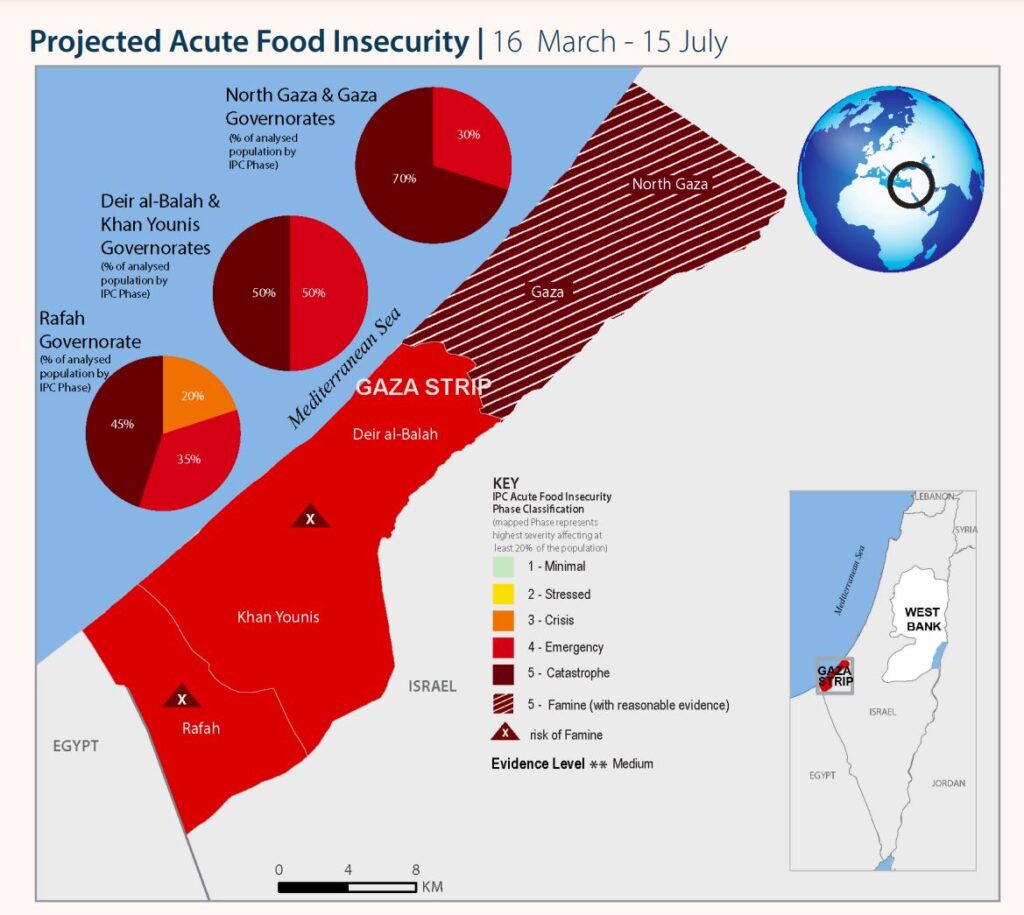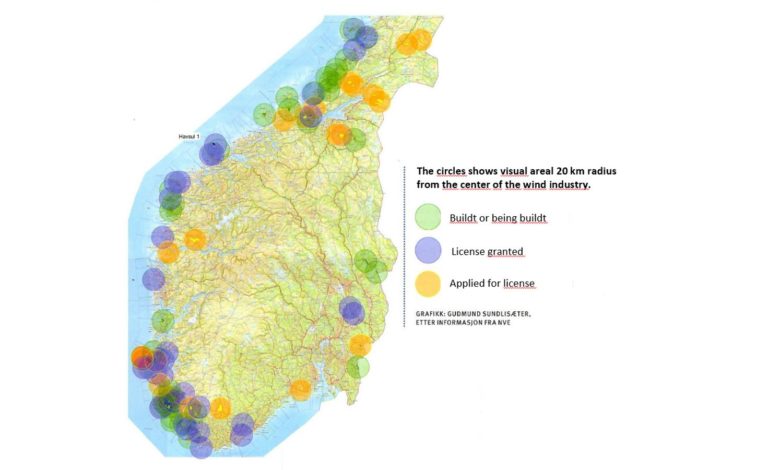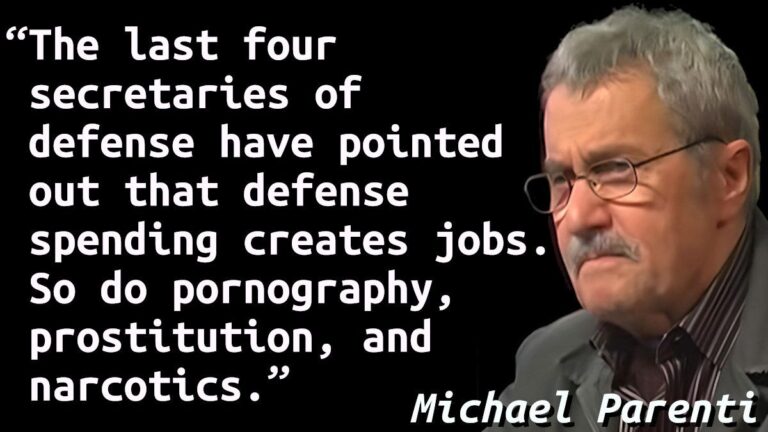
Famine is imminent as 1.1 million people, half of Gaza, experience catastrophic food insecurity
As of 31 January 2024 , 15 states had announced the suspension of funding to UNRWA. These are: Austria, Estonia, Finland, Germany, Italy, Latvia, Lithuania, Netherlands, Romania, Sweden, USA, Iceland, UK, Japan, Canada and Australia.
Some of the very governments that announced they will cut off funds to UNRWA over these allegations have, in the meantime, continued to arm Israeli forces despite overwhelming evidence that these arms are used to commit war crimes and serious human rights violations.
Agnès Callamard, Amnesty International’s Secretary General
The devastation brought about by the hostilities is indescribable. Widespread, intense, and relentless conflict has forced approximately 1.9 million people to flee, constituting 85 percent of the population in the Gaza Strip, with over 31,000 fatalities and 73,000 injuries reported.
The escalation of hostilities has caused widespread damage to assets and infrastructure indispensable to survival. About 50 percent of buildings – and more than 70 percent in the northern governorates – have been damaged or destroyed.
Extremely limited humanitarian access to and within the Gaza Strip continues to impede the safe and equitable delivery of life-saving multi-sector humanitarian assistance. This includes severe limitations to the supply of goods as well as basic services.
The Integrated Food Security Phase Classification (IPC) is an innovative multi-partner initiative for improving food security and nutrition analysis and decision-making. By using the IPC classification and analytical approach, Governments, UN Agencies, NGOs, civil society, and other relevant actors work together to determine the severity and magnitude of acute and chronic food insecurity and acute malnutrition situations in a country, according to internationally recognized scientific standards.
Lamenting the Security Council’s inability to call for a ceasefire while the entire world demands one, speakers in the General Assembly today drew attention to the mounting death toll and famine in Gaza, while Israel condemned the United Nations for collaborating with terrorists.
In April 2022, the Assembly adopted a resolution on “Standing mandate for a General Assembly debate when a veto is cast in the Security Council” (document A/RES/76/262), which has come to be described as the “veto initiative”. Today’s meeting was triggered by the use of veto by the United States on 20 February to reject the adoption of a Council resolution calling for a humanitarian ceasefire in Gaza.
While acknowledging the value of the veto initiative, Dennis Francis (Trinidad and Tobago), President of the General Assembly, expressed regret that it has to be invoked at all, with respect to the current deepening humanitarian crisis in the Gaza Strip. “This week marks a grim milestone: 150 days of violence,” he pointed out, stressing that the situation in Gaza is “catastrophic, unconscionable and shameful”.
Highlighting the reported killing and injury of hundreds of people last week during disbursement of aid supplies, he said that thousands of children are watching their childhoods evaporate into the horrors of war while scrounging for food. “Countless mothers and fathers, sons and daughters, nieces and nephews — all gone,” he added. Calling for an immediate humanitarian ceasefire, he said all parties must respect international human rights law and international humanitarian law, and all hostages must be immediately and unconditionally released.
“Have you seen the images of Palestinian children?” the Observer for the State of Palestine asked, as he held up a picture of a severely malnourished Gazan child who died today. Palestinian children are dying in darkness and destitution, he said, adding that Israel is using starvation as a weapon of war. The dehumanization Palestinians have endured makes it easier for them to be killed, he said. In contrast with the solidarity of billions around the world, some have a much higher threshold of tolerance for Palestinian deaths than Israeli deaths.
Those who consider us a lesser race” believe that Israeli security trumps the Palestinian right to life.
Israel has given the Palestinian people three options: ethnic cleansing, apartheid or genocide
All three are possible in Palestine because of the certainty of the perpetrators that they will never be held accountable. Israel has been killing, maiming and displacing Palestinians for years until the horrors culminated with the massacres in Gaza, he said, noting that Israeli leaders speak openly of the crimes they are committing and those they intend to commit and boast about torpedoing the peace process. The country has been emboldened to such a point that it feels no shame for its crimes, and it openly defies its closest allies while flouting the Charter of the United Nations
“Israel should be sanctioned,” not rewarded, he underscored, expressing gratitude to people around the world who have mobilized in support of Palestine, including the hundreds of thousands who are protesting in the streets of New York City and Washington, D.C. Also saluting the workers who are refusing to load ships carrying weapons that will go to Israel to kill Palestinian children, as well as the entities refusing to trade goods from Israeli settlements, he expressed gratitude to everyone who is unleashing the movement to hold Israel accountable. Recalling that the Vice-President of the United States chose Selma, Alabama, to call for an immediate ceasefire, he noted that she said “freedom is not to be given […] it is ours by right”. This is true of Palestinian freedom as well, he asserted.
. . . Israeli
. . . representative
. . . lying
Algeria’s delegate highlighted the careful thought that went into the draft resolution introduced by his delegation in the Council, which was vetoed by the United States. The text made a clear demand, in line with the call of millions of people around the world, for an immediate ceasefire in Gaza. During the negotiation process, his delegation tried to consider different proposals and get to a text that could garner the support of all Member States. Unfortunately, it was not possible to do that because of the use of the veto. The massacre near Al-Rashid Street is an example of what happens when the Council fails, he said, adding that it also demonstrates the limitations of Security Council resolutions 2712 (2023) and 2720 (2023). Expressing regret that the Council is the only organ that hasn’t called for a ceasefire, he cautioned that if it does not act immediately, “there will be nothing in Gaza that is worthy of living”.
Countering, the representative of the United States noted that over the past month his delegation has said clearly that the resolution before the Security Council would not achieve the goal of a sustainable peace — and may in fact run counter to it. As that resolution in and of itself would not have resulted in a ceasefire, his delegation urged colleagues not to proceed with a vote and cautioned that doing so could disrupt intensive efforts already under way with partners including Qatar and Egypt to get an agreement. His country, he added, has circulated a draft resolution that calls for a temporary ceasefire together with the release of all hostages — bringing a halt to the widespread suffering of so many Palestinian children women and men “who are caught in this crossfire of Hamas’ making” — and getting aid into the hands of Palestinian civilians. “We will continue engaging on this text so that the Council can finally condemn Hamas for its horrific attacks on 7 October which set this crisis into motion,” he stressed.
The representative of Malta, who spoke on behalf of the 10 elected members of the Security Council, namely Algeria, Ecuador, Guyana, Japan, Mozambique, Republic of Korea, Sierra Leone, Slovenia, Switzerland, and her own country, said all of them voted in favour of the text introduced by Algeria. Expressing deep regret that the draft was vetoed, she said it was a carefully crafted document calling for safe and unhindered humanitarian access into and throughout the Gaza Strip, the immediate and unconditional release of all hostages and full compliance with international law.
The representative of Australia, also speaking for Canada and New Zealand, thanked the United States for its explanation of the use of the veto on 20 February. Noting that members of his group unequivocally condemned the 7 October Hamas attacks and called for the immediate release of all hostages, he stressed that Palestinians cannot be made to pay the price of defeating Hamas. The proposed ground offensive into Rafah would be catastrophic, he said, reiterating “our message to Israel to not go down this path”. Welcoming efforts by Egypt, Qatar and the United States to mediate a pause in hostilities, he said a ceasefire cannot be one-sided: Hamas must release all hostages, lay down its arms and stop using Palestinians as human shields.
The representative of Liechtenstein, speaking on behalf of a group of countries, recalled that there have been six vetoes by three permanent members of the Security Council on resolutions and amendments related to the ongoing massive humanitarian and protection of civilians emergency in Gaza. Four texts — two draft resolutions and two amendments — have failed to be adopted for lack of sufficient votes. Calling on the Council to act in accordance with its primary responsibility for the maintenance of peace and security, he further encouraged the General Assembly “to make the most of its Charter-defined role to inspire necessary action where it is prevented by the use and threat of the veto” — which limits the ambition of potential proposals precisely when it is most needed. He urged Member States to consider how to empower the Assembly to act more decisively when the Council is unable to do so.
The use of the veto, said the representative of Qatar, speaking on behalf of the Gulf Cooperation Council, cost the Council an opportunity to strengthen international peace and security. Instead, it sent messages of double standards in international relations. Expressing alarm regarding “the worst humanitarian disaster in modern human history”, she strongly condemned Israeli threats to launch a ground military operation in Rafah, as well as measures for forced displacement of civilians. She also highlighted efforts undertaken by her country, Egypt and the United States towards a ceasefire as well as release of hostages and prisoners.
Venezuela’s delegate, speaking on behalf of the Group of Friends in Defense of the Charter, noted the abundance of information on this brutal war, which is being broadcast live by its very victims. Commending Algeria’s leadership in championing the Palestinian cause within the Council, he noted that its action-oriented draft resolution called for nothing more than an immediate humanitarian ceasefire. Countless protesters are calling for this in the streets of various capitals around the world, including in this very city on 2 March, he observed.
He, as well as many other speakers, also stressed the need to facilitate the work of humanitarian personnel on the ground and expressed support for UNRWA, which remains a lifeline for Palestinian refugees. It has played a vital role, particularly in these horrific months, but also historically, he noted, with the Assembly time and again underscoring the Agency’s indispensable humanitarian role on the ground. Especially in light of recent reports about Israel blocking aid into Gaza, it is essential to guarantee unimpeded humanitarian access consistently and safely, he said.
Along similar lines, the representative of Pakistan, speaking on behalf of the Organisation of Islamic Cooperation (OIC), condemned Israel’s efforts to dismantle UNRWA. Highlighting the carnage by Israel’s occupation forces on unarmed Palestinians awaiting life-saving aid on 29 February, he urged Member States to exert diplomatic and legal pressure on the Israeli occupation authorities to stop its crimes against humanity and called for an international peace conference on Palestine.
The representative of Yemen, speaking on behalf of the Arab Group, called on all countries to resist Israel’s genocidal agenda and attempts to terminate UNRWA. All donor countries who suspended their funding must reconsider and take swift measures to secure sustainable funding for the Agency. More than 2 million people are completely reliant on its services. Further, he stressed that current events in Gaza are a testament to the importance of granting the State of Palestine full membership at the UN. Drawing attention to the Israeli Knesset’s vote in favour of rejecting any unilateral international recognition of an independent Palestinian State, he questioned whether that country should preserve its seat in the General Assembly.
The representative of the European Union, speaking in its capacity as observer, said the European Commission will provide an additional €68 million to support the Palestinian people and will disperse €50 million to UNRWA this week. Calling on UNRWA to continue addressing allegations that “a few of its staff members were involved in the brutal and indiscriminate terrorist attacks of 7 October”, he also called on Hamas to immediately release all hostages without any precondition. He strongly condemned the terrorist attacks by Hamas across Israel on 7 October, which included sexual and gender-based violence. While Israel has the right to defend itself, it must do so in line with international law, he said.
27 Palestinian children have already died from starvation. We need a bilateral ceasefire immediately to get aid in, to get the hostages home, and to put a stop to the killing.
So today I asked the Govt to stop abstaining, and vote for a ceasefire at the UN Security Council. pic.twitter.com/diQU4KoDRq
— Layla Moran 🔶🕊️ (@LaylaMoran) March 19, 2024
“The weapons we are building in Britain, the weapons we are selling, the military support we’re providing makes us complicit.”
The #NoTaxForGenocide campaign wants to hold the British govt accountable for supporting Israel, by mobilizing Brits to withhold their tax payments. pic.twitter.com/SBtSB8I4WH
— AJ+ (@ajplus) March 20, 2024
🚨BREAKING: GAZA’S PORT WAS NETANYAHU’S IDEA.
All the claims are indicating that the port is for “aid” pic.twitter.com/hJNQffvenL
— Suppressed Voice. (@SuppressedNws) March 14, 2024




1 Comment
Pingback: Economic forces at play in Israeli Genocide on Palestinians - Kushner urges Israel to "finish the job" - Bergensia